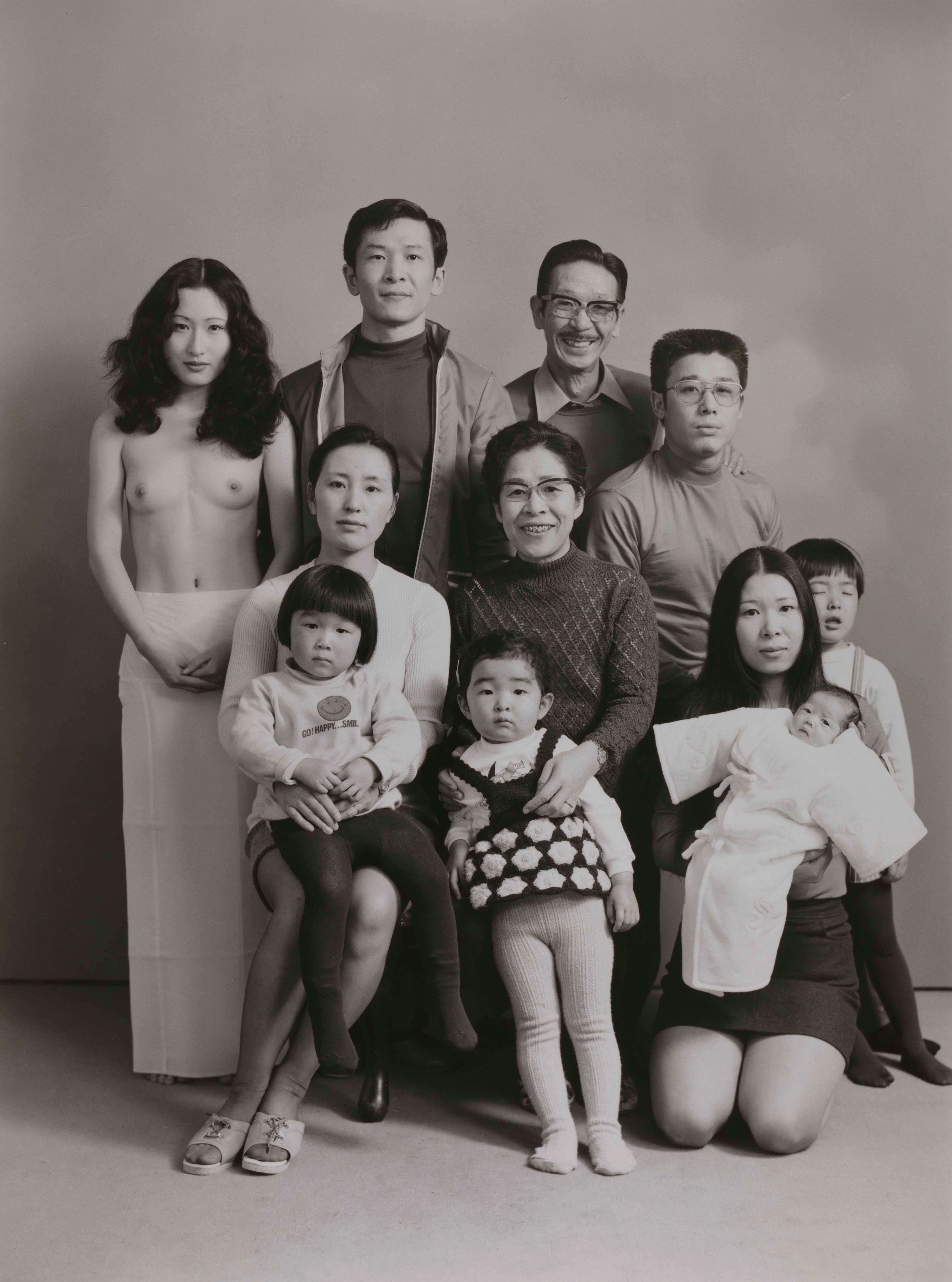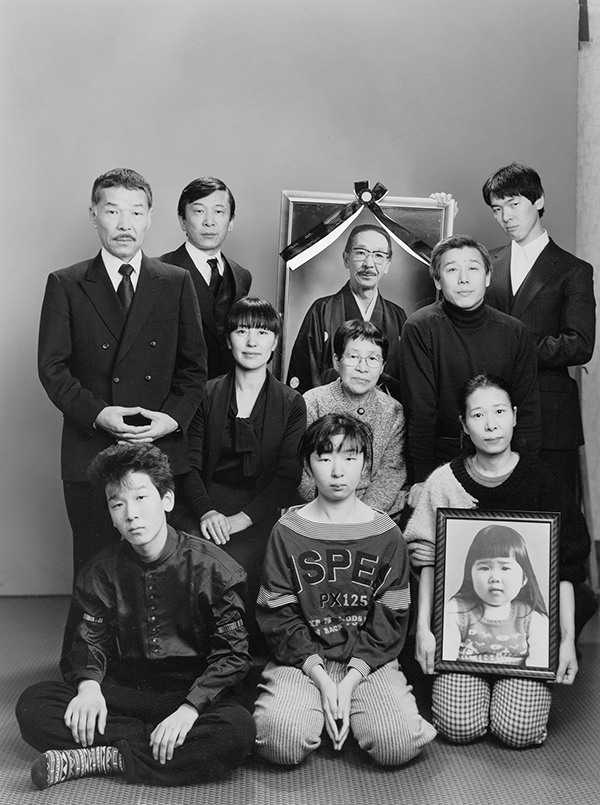Collective Photographer Oliver Endicott reflects on the work of Masahisa Fukase and his project ‘Family’, with the work soon to be reprinted by Mack Books.
‘My entire family, whose image I see inverted in the frosted glass, will die one day. This camera, which reflects and freezes their images, is actually a device for archiving death’. – Masahisa Fukase
In the summer of 1971, Fukase had returned home to Bifuka in the Hokkaido province, where his family had owned a photography studio for more than 3 generations. Followed by a sense of nostalgia and a realisation of how fast his family was growing, Fukase decided his next project was to document his family in their home studio. Between 1971 and 1989, he would regularly return home to do so, often adding in elements of humour and people who were not at all related to his family.
The women seen during the beginning phases of the work act as a placeholder for himself. Perhaps these placeholders represent how he has neglected seeing his family over time, so much so that it may as well be a stranger posed alongside them. However, Fukase eventually started to include himself in the images as well as taking singular portraits of his mother and father which are referred to as ‘portraits of a deceased person’. Fukase was coming to terms with how his parents were getting older and greyer every time he returned to see them. He started to see the camera as a “device for archiving death”.
This brutal yet honest outlook can be felt in the aesthetic and tone of the images, they have a softness to them and a sense of fragility. There is a portrait of both Masahisa and his father to show the likeness’ and differences. In 1987 his father died of pneumonia at the age of 74. A few days after his funeral, Fukase produced final ceremonial photos, including a framed portrait of his father in the very space he once sat for the photo. There is a clear sense of mourning and sadness within the image, yet his family members are still smiling for the photo and happy to be around one another even during a difficult period in their lives.
Like with most of Fukase’s work, there is an element of self-reflection in ‘Family’ which is often echoed back to the viewer particularly with this project. It made me start to think about my own family and how it’s not really much of a tradition to take family portraits, let alone to go back and view old family photos. I can only remember a handful of times I’ve looked at old photos of relatives and friends. The majority of people’s personal photos are now shared online through social media, making them no longer for the family.
There is something warming and special about seeing old photos of loved ones with the slowness and pace of flicking through a family album, it allows for time to reflect and remember. Posting these images online only subtracts from that experience. However, I do think family albums also have a cultural significance, they are often a portal into the past bringing to light old traditions and visions of how we used to dress, act and love one another. We live such fast lives that we often forget about the ones who love us. These images show how in just 31 images, life can flash before your eyes and how you become old. This is a project of Fukase’s that is often overlooked but is a beautiful and sincere motif on the importance of family.
‘Family’ is soon to be republished by MACK books in September 2019 and I highly recommend picking it up from here.
Masahisa Fukase
All images by Masahisa Fukase
About
“Family (Kazoku) was released in 1991, and was Fukase’s last book. It begins with a photograph of the family studio and the following 31 images are family portraits made in the studio in chronological order. The book includes an extensive text written by Fukase himself and a modern essay by Tomo Kosuga.” Text from the bio on Mack Books.
Upcoming Publications.
The latest version of Family, can be pre ordered from Mack here
Article by Collective Photographer, Oliver Endicott
If you enjoyed this article by Oliver, check out our conversation with Toby Glanville




